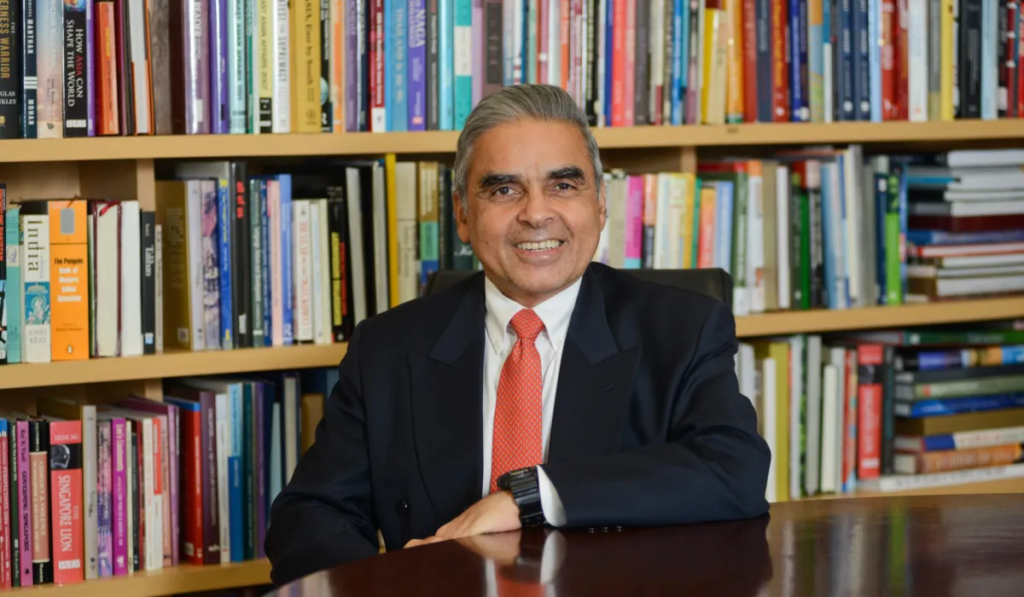UK should give its UNSC seat to India, according to former Singaporean diplomat Kishore Mahbubani, who believes that India has rightfully earned its place as a permanent member of the United Nations Security Council (UNSC).
Mahbubani, a former president of the UNSC, argues that the United Kingdom, once a dominant global power, should step aside and make room for India, which he describes as the world’s third most-powerful country.
His assertion that the UK should give its UNSC seat to India is rooted in the belief that the current geopolitical landscape has significantly shifted, making it necessary to reassess the composition of the UNSC.
India’s rise as a global power has been nothing short of remarkable. Since gaining independence from British rule in 1947, India has transformed itself into one of the world’s largest economies, with a GDP that now surpasses that of the UK. In September 2022, India became the fifth-largest economy globally, overtaking the UK, a milestone that underscores its growing influence on the world stage.
With a population of over 1.4 billion, a burgeoning middle class, and a dynamic economy, India’s role in global affairs has expanded significantly, making the argument that the UK should give its UNSC seat to India even more compelling.
UK should give its UNSC seat to India : Kishore Mahbubani

The structure of the UNSC, which was established in the aftermath of World War II, reflects the power dynamics of that era. The five permanent members— the United States, the United Kingdom, France, China, and Russia—were the major Allied powers during the war and were granted veto power as a means of maintaining global peace and security. H
owever, the world has changed dramatically since then, and the distribution of global power has shifted. Many experts and diplomats, including Mahbubani, now argue that the UK should give its UNSC seat to India to better reflect the realities of the 21st century.
India has a strong case for permanent membership in the UNSC. As the world’s largest democracy, India has consistently upheld democratic values and principles on the international stage. It has also been an active participant in UN peacekeeping missions, contributing more personnel than any other country.
India’s commitment to multilateralism and its role in addressing global challenges such as climate change, terrorism, and sustainable development further bolster the argument that the UK should give its UNSC seat to India.
The UK’s position on the UNSC has been increasingly questioned in recent years. Mahbubani points out that the UK has not used its veto power for decades, suggesting a reluctance to engage in assertive global leadership. In contrast, India has emerged as a key player in international diplomacy, with a growing influence in regional and global affairs.
The argument that the UK should give its UNSC seat to India is not just about recognizing India’s rise, but also about acknowledging the decline of British influence on the world stage.
The G4 nations—Brazil, Germany, India, and Japan—have long advocated for reforms to the UNSC, including the expansion of permanent membership. These countries support each other’s bids for permanent seats, arguing that the current structure of the UNSC is outdated and does not reflect the contemporary global order.
Mahbubani’s call for the UK to give its UNSC seat to India aligns with the broader push for reform, as many believe that the inclusion of countries like India would make the UNSC more representative and effective.
The suggestion that the UK should give its UNSC seat to India also highlights the need for a more equitable global governance system. As the world becomes more multipolar, with power distributed among a larger number of countries, it is increasingly clear that the current composition of the UNSC is no longer fit for purpose.
The inclusion of India as a permanent member would not only recognize its growing influence but also help to ensure that the UNSC remains relevant and capable of addressing the challenges of the 21st century.
India’s strategic position in Asia, its large and youthful population, and its rapidly expanding economy make it an indispensable player in global affairs. The country has also demonstrated its commitment to global peace and security through its participation in UN peacekeeping missions and its efforts to combat terrorism and promote sustainable development.
These factors, combined with its democratic values, make a strong case for why the UK should give its UNSC seat to India. Furthermore, the UK’s own standing in the world has been increasingly questioned in recent years. Brexit has led to a significant reduction in the UK’s influence within Europe, and its global role has been diminished as a result.
Mahbubani’s assertion that the UK should give its UNSC seat to India reflects a broader recognition that the UK’s influence on the world stage is waning, while India’s is on the rise. By stepping aside and allowing India to take its place, the UK would be acknowledging this shift in global power and helping to create a more equitable and effective global governance system.
In conclusion, the argument that the UK should give its UNSC seat to India is rooted in the recognition of India’s rise as a global power and the decline of British influence. As the world’s third most-powerful country, India has earned its place as a permanent member of the UNSC, and the inclusion of India in the Council would make it more representative and capable of addressing the challenges of the 21st century.
The UK, by stepping aside, would be acknowledging the changing geopolitical landscape and contributing to a more equitable global governance system. The suggestion that the UK should give its UNSC seat to India is not just about recognizing India’s growing influence, but also about ensuring that the UNSC remains relevant and effective in a rapidly changing world.

